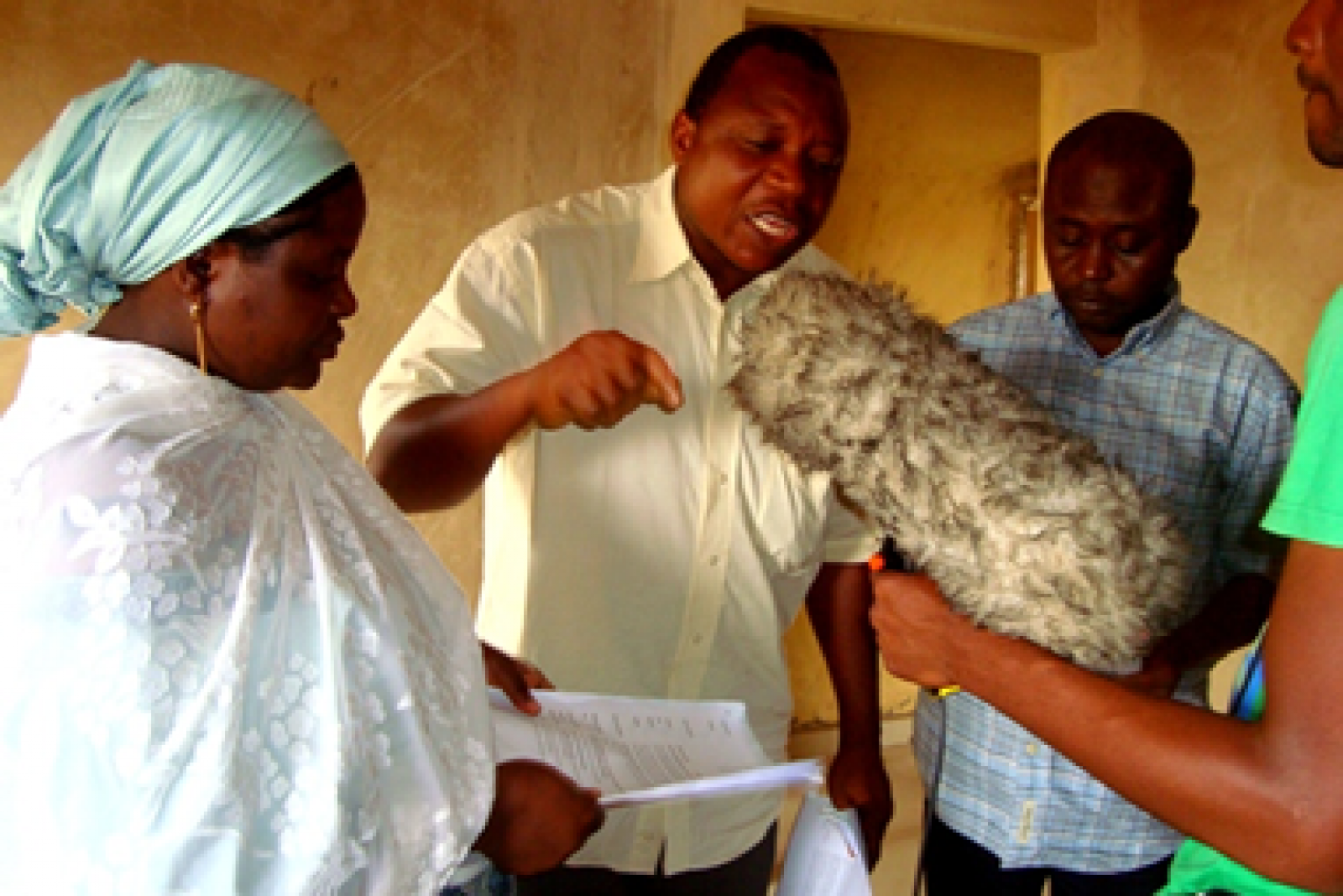
SHARE
In one episode of the Nigerian radio drama Dukan Karshe, a young man and woman decide to run for their local council to correct injustices, including government funds being diverted from schools and hospitals to line the pockets of local politicians. “It is time for us as women to take part fully in politics,” the woman says. “We are the mothers. We know what is good for our community.”
In another, a young female character named Sakina speaks to women who are frustrated that their children are not receiving state scholarships they have qualified for. She encourages the women not to let the government misuse the money and explains how to write a petition and gather signatures to take to the local council. “The most important thing is that we all have one voice. That is the only way we can create change,” she tells them.
Dukan Karshe, which means roughly “the last straw” in the Hausa language, was a nine-part series broadcast in northern Nigeria March 25-May 4 that was produced, with help from NDI, by a local civil society group called Forward in Action for Education, Poverty, and Malnutrition (FACE-PAM). Its goal was to guide young Nigerians on how the political process works and how to push for reforms.
Largely Muslim northern Nigeria is underdeveloped in comparison with the rest of the country, and education levels are low, especially among women. The region bore the brunt of post-election violence following the 2011 general elections, and it has been wracked by Islamist terrorist attacks over the past two years. Many observers believe that the violence is a result of resentment about the north’s poor standard of living, which is partly caused by mismanagement and bad governance. Encouraging women and youth to get involved in politics could bring a fresh enthusiasm for reform in the region.
The radio drama, told in two dialects of the Hausa language that is prevalent in northern Nigeria, covers such themes as the roles and rights of citizens in a democracy, reducing corruption in government, holding elected officials accountable for their campaign promises, and increasing the participation of women and youth in governance.
About 450 people called or texted FACE-PAM throughout the broadcast period to express appreciation for the program. A woman from Adamawa state called to say that she was running for the council position in her constituency in the next elections and felt encouraged by the series, which she believed would make her community more open to selecting a female councilor.
In addition to the drama, FACE-PAM recorded and aired three radio panel discussions in which northern community leaders discussed the themes of the series and responded to questions from listeners, who were prompted after each broadcast to send in their thoughts via text message.
FACE-PAM hopes that the series will encourage political participation by women and youth—who are traditionally marginalized in northern Nigeria—by reinforcing the idea that they are capable leaders and can run for office without upsetting religious or cultural sensibilities.
NDI and FACE-PAM created the radio drama with support from the United States Agency for International Development and the United Kingdom Agency for International Development.
Read more:
- Nigerian Film Challenges Young Citizens to Engage with Elected Leaders»
- Project Swift Count Observes Five Gubernatorial Races in Nigeria»
- Election Commission Head, Observers Highlight Progress and Remaining Challenges in How Nigeria Conducts Elections&rauo;
Published June 26, 2013


